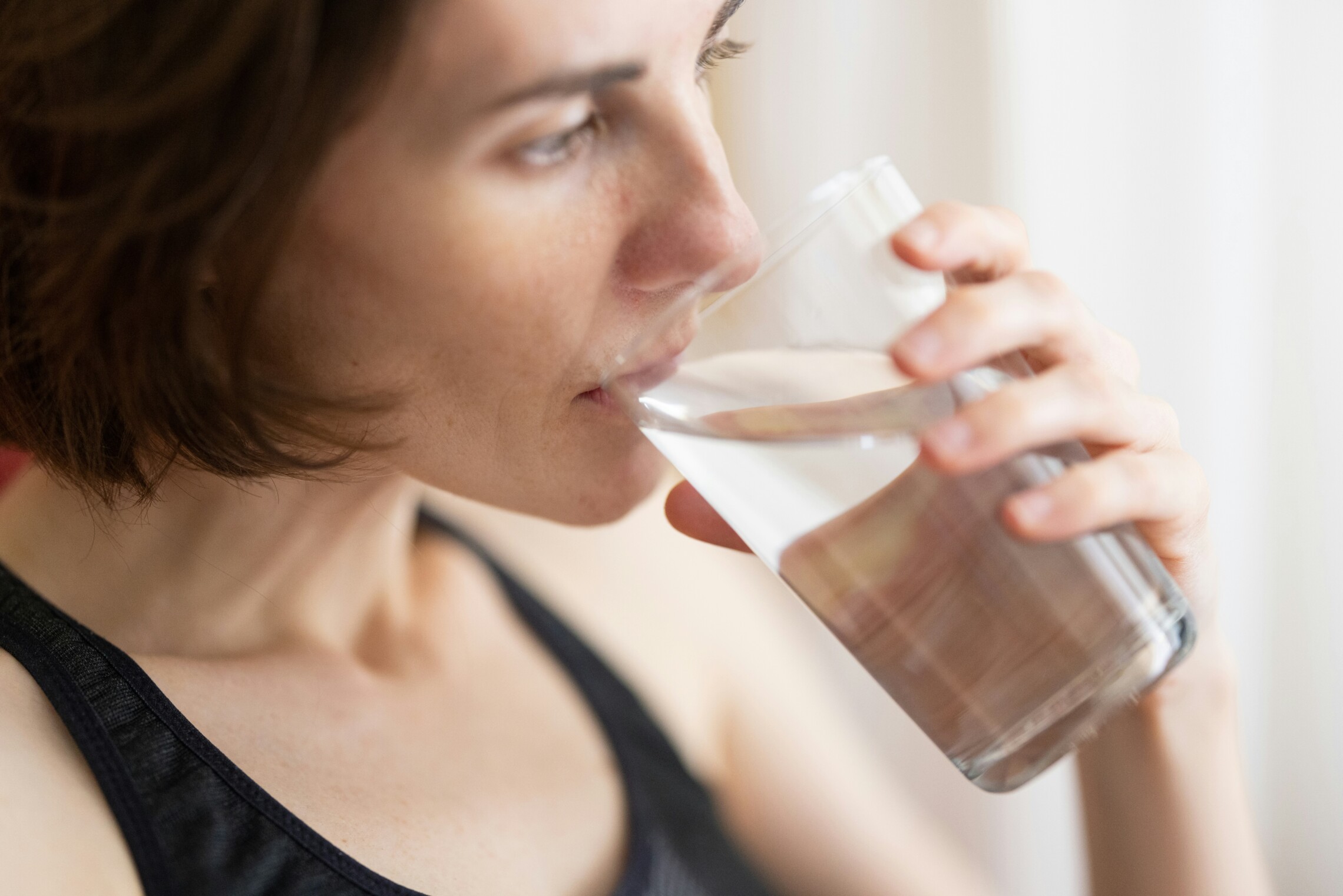How to Stay Hydrated During Cancer Treatment

Cancer treatment can make it difficult to meet one of your body’s most fundamental needs—the need for water. Staying hydrated is crucial to keeping your body working smoothly and minimizing uncomfortable side effects. Let’s talk about cancer treatment and dehydration.
Why cancer treatment causes dehydration
Cancer treatment can cause dehydration via several different mechanisms:
- Vomiting & diarrhea: These are very common side effects of chemotherapy and other cancer treatments. And they can quickly deplete your body of precious liquids.
- Fever: Sometimes cancer treatment can trigger fever directly (i.e. “chemo fever”). This elevation in body temperature causes you to sweat and lose more body moisture via evaporation.
- Loss of appetite: If cancer treatment causes you to lose your appetite, you may stop consuming adequate liquids without even realizing it. This isn’t just a matter of drinking fewer beverages. Food has a high water content, so eating less can quickly dehydrate you.
- Mouth & throat pain: Painful swallowing and mouth sores are common complications of cancer treatment. These side effects can cause you to inadvertently avoid foods and drinks, leading to dehydration.
What happens when you’re dehydrated?
Water is absolutely essential for good health, which is why staying hydrated is one of the best things you can do for yourself. In the human body, water plays countless critical roles, including flushing out toxins and wastes, regulating your blood pressure and heart rate, regulating your body temperature, carrying nutrients and oxygen to your tissues, dissolving minerals and nutrients so they can be used, lubricating your joints, and many more.
Your brain is almost 75% water, which is why dehydration causes immediate changes in your cognition. You may feel irritable, fatigued, or experience other mood changes. You may also feel lightheaded and dizzy. Similarly, dehydration headaches are extremely common. As the brain dries up, it begins to shrink and pull away from the skull, stressing the nerves and causing pain.
Needless to say, adequate hydration is very important for healing during the cancer journey. Whether your body is rebuilding tissue after surgery, removing damaged cells during radiation treatment, or flushing out waste during chemotherapy, water is essential. Better hydration can also help minimize the many side effects of cancer treatment and improve your quality of life throughout the cancer journey.
Signs of dehydration
The first signs of dehydration typically occur in the mouth. If you have dry lips, a dry or sticky mouth, or a swollen-feeling tongue, you may already be dehydrated. Of course, feeling thirsty is also a reliable sign that you need water (but just because you’re not thirsty doesn’t mean you’re well hydrated). Skin that is dry and less elastic than normal is another red flag.
Check your mood and energy level. Are you feeling stressed, fuzzy-headed, or irritable? Sluggish, weak, or fatigued? These are all possible signs of dehydration. As we discussed above, dehydration can also trigger headaches. It can make you feel dizzy, lightheaded, confused, and woozy.
You should also consider whether you’re passing waste normally. If you’re constipated or urinating infrequently, or if your urine is darker than normal, it could mean that you’re dehydrated.
Finally, some signs of dehydration are very serious. If you are feverish, have a racing heartbeat, very dark urine, falling blood pressure, or an inability to urinate, seek emergency medical attention.
How to prevent dehydration
Staying hydrated can be difficult during cancer treatment, but the benefits are important and you’ll feel them almost immediately. Here are some of our best tips for staying hydrated:
- Stop fluid loss. If you’re dealing with nausea, vomiting, or diarrhea, talk to your care team ASAP and try to address these complications. There may be treatments available that help you keep fluids down, thus staving off dehydration before it starts. Certain drugs can also stimulate your appetite and ease pain from cracked lips, mouth sores, etc.
- Diversify your drinks. Water is the best way to stay hydrated, but there are any number of other fun drinks that can help you top off your liquids. That includes sparkling water, herbal teas, kombucha, sports drinks, bouillon or broth, mushroom elixirs, and so on. Try to avoid drinks that contain sugar or caffeine.
- Eat water-rich foods. Fruits and veggies are mostly water and can make hydration easier to manage. Think watermelon, cucumber, oranges, peaches, celery, bell peppers, yogurt, smoothies, frozen pops, and soups. Sucking on ice chips replenishes your water while soothing nausea and sore throat.
- Keep liquids handy. Carrying a high-quality steel water bottle can work wonders for your daily hydration practices. You can also stock your bag, car, and office with juice boxes, seltzer cans, and bottled drinks. Try keeping carafes of water in prominent places around the house (on the kitchen counter, your bedside table, etc.) to remind yourself to drink.
Final thoughts
Dehydration doesn’t just worsen side effects and slow the healing process—it’s a common cause of emergency room visits during cancer treatment. The good news is that staying hydrated is possible if you know the warning signs and follow smart hydration strategies. As always, keep your healthcare team up to date about your symptoms and check with them before making any major changes!
The content on this website is intended to provide the best possible information for you, but should not be considered—or used as a substitute for—medical advice. If you have questions about your diagnosis or treatment, please contact your health care provider(s). For questions or comments about this content, please email us at [email protected].